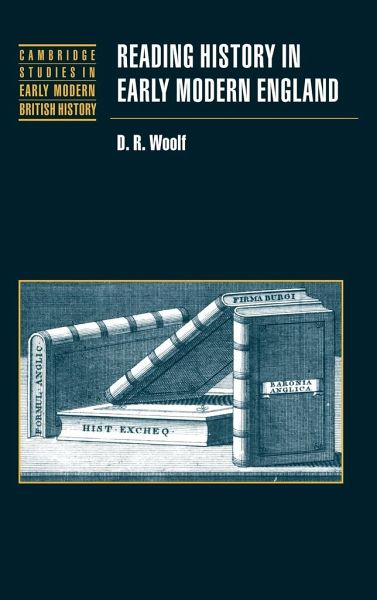
Reading History in Early Modern England

PAYBACK Punkte
75 °P sammeln!
This book focuses on the 'after-life' of historical texts in the period between the arrival of printing in England and the early eighteenth century. Whereas previous studies of historical writing during this period have focused on their authors and on their style or methodology, this work examines the history book from a number of other perspectives. The intent is to situate the study of history books within the current literature on the history of the book and the history of print culture. After discussing the process whereby the inheritance of the medieval chronicle was broken down into a va...
This book focuses on the 'after-life' of historical texts in the period between the arrival of printing in England and the early eighteenth century. Whereas previous studies of historical writing during this period have focused on their authors and on their style or methodology, this work examines the history book from a number of other perspectives. The intent is to situate the study of history books within the current literature on the history of the book and the history of print culture. After discussing the process whereby the inheritance of the medieval chronicle was broken down into a variety of different historical genres during the sixteenth century, the author turns to the questions of how and why history books were read, who owned them, the borrowing and lending of them, their production and printing, and methods for marketing and distributing them.














